A collection of methods, ranging from the sorta-ordinary to the unorthodox, of learning via direct experience.
A couple weeks ago, I published part one of this essay, in which I considered Arthur Schopenhauer’s ideas of “natural” versus “artificial” education. I summarized Schopenhauer’s contrasting concepts of education as follows:
“So Schopenhauer opens the essay by asserting that a “natural” education is one in which a subject first experiences the world and later abstracts it into general principles. That is, a person does and sees a bunch of shit before ever trying to come up with overarching concepts of what the world is, how to act in various situations, etc.
[…]
The artificial method of education, for Schopenhauer, is essentially the inverse of the natural method and the method inherent in most organized systems of education. Instead of first frolicking through a prolonged experience of the world, an artificially educated subject learns, via lectures and books, an array of general ideas about the world, with the aim of later applying them to experience.”
For Schopenhauer, the artificial method of education tends to result in minds filled with preconceived notions and abstract ideas. Such minds will attempt to impose their ideas onto the world, rather than allowing the phenomena they encounter to affect them in an organic way. This prevents them from simply experiencing without constantly judging and compartmentalizing. For a more in-depth look at these ideas, I encourage you to read part one of this essay.
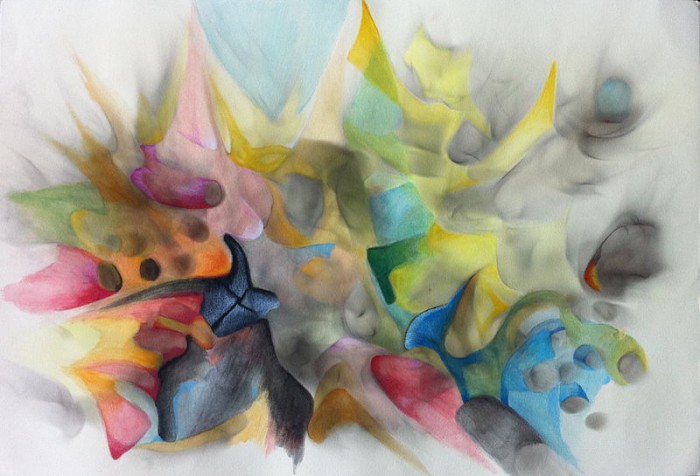
Untitled by Humberto Antonio Muniz. Photo Credit: Wiki Commons
Ultimately, I did not entirely agree with Schopenhauer’s prescriptions. I wrote:
“I’m skeptical of whether all of one’s general ideas should be rooted in experience and observation, as Schopenhauer insists. Perhaps as many as possible. But I think such a strict litmus test for evaluating ideas discounts the valuable lenses to be found via reading in areas such as history, economics, political theory, philosophy, critical theory, and countless other fields of study wherein one might find useful frameworks for thinking that are beyond the scope of one’s direct experience. What is key, I think, is to maintain a skeptical attitude, viewing each of these sets of ideas as fallible tools—mental models that might be useful to interpret the complex phenomena of the world. So, as with so many things, I feel like there is a balance to aspire to—a perspective that is attentive to firsthand experience without being dismissive of book-learning, and vice versa.”
I went on to say that I’m interested in how, after years of book-learning, one might go about reconnecting with raw experience and thereby, perhaps, counterbalancing the “mistaken views of life” that Schopenhauer suggests are an inevitable result of “artificial education”. That tantalizing question is the subject of this installment, in which I will touch upon various modes of experiential learning that seem useful, nourishing, and/or educational to me.
Infant Mind
I think a fruitful place to begin this discussion is to consider the way an infant perceives the world—free of all preconceptions, categories, words, and even concepts of separate objects. I once wrote a sort of guide to seeing the world in this way, but I like Alan Watts’ explanation better. In his remarkable book Tao: The Watercourse Way, he wrote:
“You are asked — temporarily, of course — to lay aside all your philosophical, religious, and political opinions, and to become almost like an infant, knowing nothing. Nothing, that is, except what you actually hear, see, feel, and smell. Take it that you are not going anywhere but here, and that there never was, is, or will be any other time than now. Simply be aware of what actually is without giving it names and without judging it, for you are now feeling out reality itself instead of ideas and opinions about it. There is no point in trying to suppress the babble of words and ideas that goes on in most adult brains, so if it won’t stop, let it go on as it will, and listen to it as if it were the sound of traffic or the clucking of hens.
Let your ears hear whatever they want to hear; let your eyes see whatever they want to see; let your mind think whatever it wants to think; let your lungs breathe in their own rhythm. Do not expect any special result, for in this wordless and idea-less state, where can there be past or future, and where any notion of purpose? Stop, look, and listen . . . and stay there awhile before you go on reading.”
Watts suggests that it’s possible, through a bit of effort, or perhaps, more aptly, surrender, to enter an infant-like state of mind. Therein he suggests that one can access certain ways of understanding not readily available to the intellectual mind. I won’t go into specifics about what one might gain via this mode of experience. To do so might defeat the purpose of encouraging experiential education. However, if you’re interested in these ideas, I highly recommend Watts’ book.
The Parrot
Venkatesh Rao, one of my blog-heroes, once wrote an essay titled ‘The Parrot‘, in which he recounted an experience involving a white parrot. The owner of the bird had left it, uncaged, on a chair atop a table in a bustling Commons area in Ithaca, New York. Rao watched as numerous people walked past the exotic bird, and he recorded their responses to what he felt should have been a definite non sequitur in the day-to-day life of most anyone, anywhere. The majority of people, however, didn’t seem to really see the parrot, Rao concluded. They glanced at it, but because of preoccupations or preconceived explanations, their engagement with the bird was not “authentic”. Rao wrote:
“Most of the time, when we look for an explanation, we can only see an explanation. Sometimes, when the mind hiccups on the path to the explanation, we see the parrot.
Viktor Frankl said, “between stimulus and response there is a space. In that space is our power to choose our response. In our response lies our growth and our freedom.” Self-improvement gurus like to use that quote to preach, but to me, it seems that this space is primarily interesting because the parrot can live there for a bit, so your mind can be parrot for a bit.”
I see Rao’s essay as relevant to this discussion in two ways. First, I think “seeing the parrot” would be a worthy shorthand for “experiencing things directly, prior to imposing explanations and ideas onto them”, which seems to be precisely what Schopenhauer meant by natural education. I should note here that I think there are important parallels between one’s ability to engage an infant mind and one’s ability to “see the parrot”.
Second, Rao’s essay is an excellent example of meticulous meta-awareness of one’s own thought process. In ‘The Parrot’, Rao not only records what he notices, but also asks questions about why certain details strike his brain as especially significant or noteworthy. This meta-awareness treats thought processes as experiences and seems key to gaining an understanding of the mental models that have become most dominant in one’s everyday perception. If this is fascinating, definitely read ‘The Parrot’.
Nonsense and Silliness
I often do silly things like babble mindless gibberish, freestyle rap whatever nonsense comes to mind, jump and whirl around wildly, lie on my back and flail my arms and legs up in the air, etc. Yeah, seriously I do this stuff. I’ve reached a point where I think, as a general rule, that harmless spontaneous impulses should be embraced. The illustrious Dr. Seuss once said, “I like nonsense, it wakes up the brain cells.” Like him, I feel there’s something liberating and perhaps profound to be ascertained in thoughtless play and silliness. The Principia Discordia, the primary text of the parodic, absurdist religion/philosophy of Discordianism, has something to say about this, though I advise approaching with levity:
“If you can master nonsense as well as you have already learned to master sense, then each will expose the other for what it is: absurdity. From that moment of illumination, a man begins to be free regardless of his surroundings. He becomes free to play order games and change them at will. He becomes free to play disorder games just for the hell of it. He becomes free to play neither or both. And as the master of his own games, he plays without fear, and therefore without frustration, and therefore with good will in his soul and love in his being.”
Aimlessness
It should be self-evident that what is most essential to experiential learning is to drop the books for a while and actually go have some experiences. Though the educational potential of ordinary, everyday experiences should not be discounted, I think atypical experiences tend to be more likely to alter perception or yield new understanding. Two components that I see as key to a certain type of atypical experience are: new location and lack of structure.
Some of my most acute intuitive feelings or moments of insight have come amidst aimlessness—while trekking through a Malaysian rainforest, wandering around in South Korean cities, kayaking Halong Bay in Vietnam, lounging on an Indonesian island, etc. In my experience, engaging the infant mind in these situations tends to be exceptionally worthwhile. Also, don’t feel like you have to book the next flight to Asia. Try the woods near your apartment, or literally go get lost in your own city and see what happens. Or don’t, you know, don’t force it.
Make Something
Making things—nightstands, paintings, sand castles, poems, etc.—is one of the most obvious modes of experiential learning. Doing so will, of course, educate you in the art of whatever craft you have chosen to pursue. Beyond that, I think there is something to be learned from the simple act of doing something as well as you can—something about integrity and refinement, or something. Furthermore, the things we make are expressions of us and can, therefore, to varying degrees, act as mirrors that reveal to us things about ourselves that are otherwise difficult to see. Making things also tends to induce flow states, my next point of discussion.
Flow
“Flow” is a psychological concept that was first described in the 70s by Mihaly Csikszentmihalyi, a Hungarian positive psychologist. Csikszentmihalyi became fascinated by artists who would become entirely absorbed and “lost in” their work and began researching the phenomenon. Wikipedia defines “flow” as follows:
Flow is the mental state of operation in which a person performing an activity is fully immersed in a feeling of energized focus, full involvement, and enjoyment in the process of the activity. In essence, flow is characterized by complete absorption in what one does.
Flow is a sort of oneness with whatever activity you’re performing, a place where you’re entirely “with it”, doing it and being it so completely that you are it, and everything else melts away. I would argue that understanding which activities allow one to enter a flow state and utilizing that understanding is beneficial for a number of reasons—greater enjoyment, stress reduction, less fractured attention, less self-consciousness, the realization that, in life, there are smooth contours upon which one can glide smoothly, etc. Flow is not limited to art or making things. Some of the most immersive activities, for me, are writing, playing piano or guitar, rapping, or drawing, but also skiing, scuba diving, and longboarding. One time I wrote an article about flow.
Abnormal Aesthetic Engagement
As we scuttle along through this ever-faster modern world, it’s not often that we pause and attempt to contemplate the appearances of things. We tend to see everything only in terms of utility or entertainment, to ask how something can stimulate or serve us. I don’t really want to tell you to go lay down and stare at the stars or the ocean or a tree for half an hour, but . . . go lay down and stare at the stars or the ocean or a tree for half an hour. While doing so, try to engage something like the infant mind, freeing yourself of the concepts of “star”, “ocean”, “tree”, etc. with the aim of really seeing those forms. Again, “see the parrot”. Or don’t, whatever, do whatever.
You also might try a little thought experiment in which you walk around imagining what it would be like to see Earth through the eyes of an extraterrestrial—to have never seen the wilderness or seas or skyscrapers or humans or clouds or dogs or automobiles of Earth. This might result in an awareness similar to the infant mind, but it is more so an imaginative exercise in perceiving strangeness. To perceive strangeness or arbitrariness or suchness in “ordinary” things like humans or carrots or iPads is, I think, an imaginative ability that countless visionaries across history have cultivated, but which the majority of people do not explore.
Meditation
I should mention the nearly endless varieties of meditation that one might practice. I’ve written about three closely related forms: sitting meditation, mindfulness, and conscious breathing. There exists a cornucopia of meditation techniques far too vast and diverse to really explore here, so I recommend a bit of Googling and/or Wikipedia-ing if you want to get a feel for the territory. In general, though, the objective of meditation is to induce a particular focused state of mind, in the present moment, as an end in itself. Meditation might be thought of as a direct means of exploring what it’s like to be a sentient being in a mysterious existence right now. Most everything I’ve mentioned in this article could reasonably be considered a form of meditation.
Substance-Induced States
Numerous writers, thinkers, and scientists whom I respect—Aldous Huxley, Carl Sagan, Tao Lin, Allen Ginsberg, Alan Watts, Terence McKenna, Victor “KOOL A.D.” Vasquez, and Richard Feynman, to name a few—used or advocated for the use of various psychedelic substances for purposes of awareness expansion or enjoyment. Based on what I’ve read about cannabis, LSD, and psilocybin mushrooms, these substances have the potential to induce dream-like or mystical states of consciousness and to dissolve deeply engrained belief structures. Certainly, if you consider dabbling, do your research and take appropriate precautions. Of the three I mentioned, cannabis is considered to be by far the most benign and generally harmless. I’ll end this section with a quote from Terence McKenna:
“Psychedelics are illegal not because a loving government is concerned that you may jump out of a third story window. Psychedelics are illegal because they dissolve opinion structures and culturally laid down models of behavior and information processing. They open you up to the possibility that everything you know is wrong.”
Do This Shit, or Not
So that’s it—my collection of methods of experiential learning that seem, for me, valuable. Maybe it’s possible, via some combination of these approaches, to remedy what Schopenhauer saw as the disastrous effects of a purely “artificial” education. Maybe not. Maybe something in this piece inexplicably struck you like a dollop of bird dung and made you look to the sky in wonderment. If so, you should probably go do that. Or not. Just do your thing and question all the things. That’s the modus operandi.
Also, maybe fall in love sometime. Romantic love is, like, the definition of experiential education, right? I don’t know, bye.
If this was galaxalicious, read the mission and subscribe.
About Jordan Bates
Jordan Bates is a Lover of God, healer, mentor of leaders, writer, and music maker. The best way to keep up with his work is to join nearly 7,000 people who read his Substack newsletter.

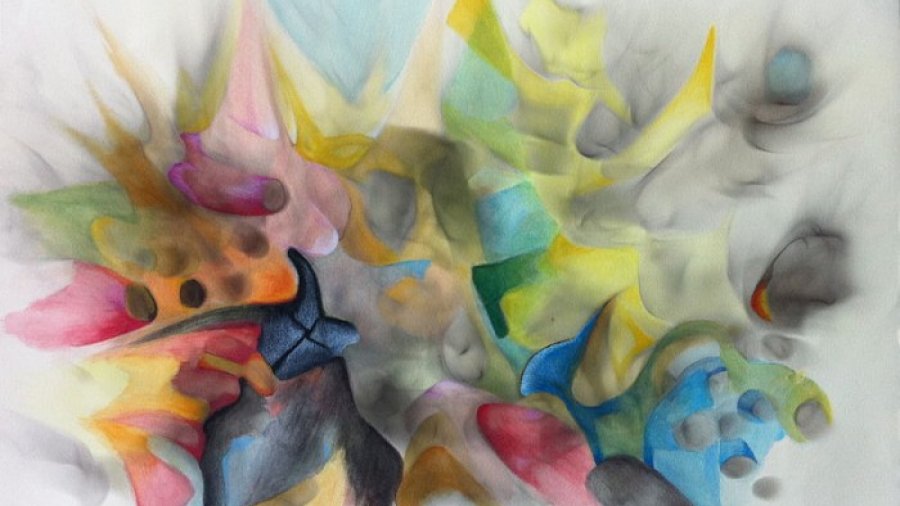
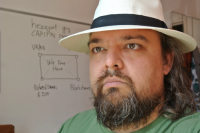
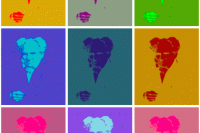
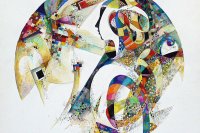
[…] wisdom of Taoism. If you’re curious enough, I think you’ll find that there are ways of resetting your default mode of being. Alan Watts’ books, Tao: The Watercourse Way and The Way of Zen, might aid you in your […]